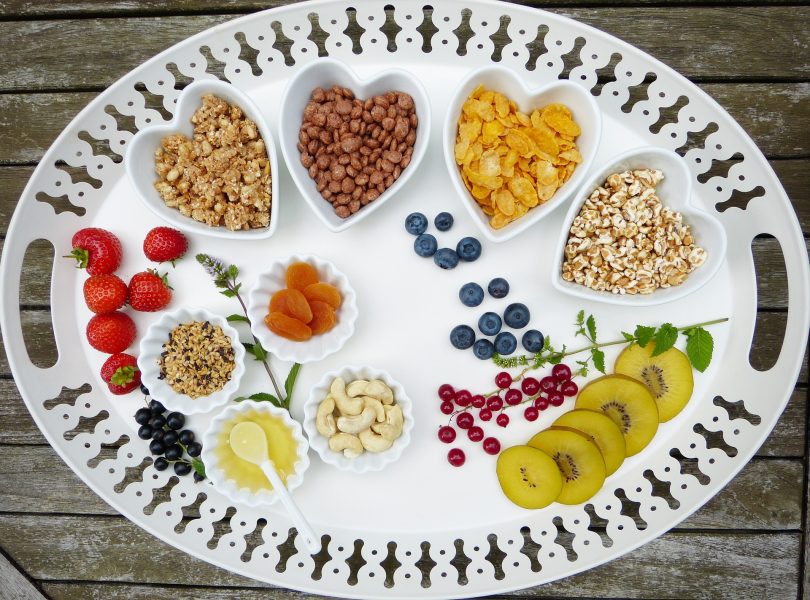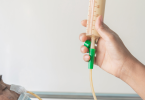March is Colorectal Cancer Awareness month and, fortunately, this type of cancer comes with several nutrition recommendations that can reduce your risk. Because what you eat goes through your colon, it can play a big role in your cancer risk. Let’s take a look at what foods you should reduce or avoid and which ones you should increase to lower your colorectal cancer risk.
Both alcohol and smoking increase your risk. It is recommended to quit smoking and we have great resources for help with this through our Smoking Cessation program. With regards to alcohol, it is best to not drink, but otherwise please limit your intake. Recommendations are up to one drink/day for women and up to two drinks/day for men. Both of these are linked to several cancers, so addressing these habits can reduce your risk across the board.
One of the main areas to address in your diet is processed and red meat intake. It is recommended to avoid processed meats as much as possible. The nitrates in hot dogs, lunch meat, sausage and bacon increase the production of N-nitroso compounds that damage the lining of the gut and intestines. A high intake of these foods will cause repeated damage and make it more likely for cancer cells to develop. Red meat is also something that should be limited to no more than 18 ounces/week. Beef, pork, and lamb also increase the production of the same compounds and the added heme-iron found in these meats can cause damage to the digestive tract.
The good news is there are also foods you can increase in your diet to reduce your risk. These are foods that increase your gut motility or movement, namely fiber and water intake. Foods high in fiber are your vegetables, fruits, whole grains, and legumes or beans. So while you work on reducing your meat intake, you can balance your meals out by adding more vegetables or grains like brown rice or whole wheat pasta. You can also work on increasing your physical activity.
Although the official recommendations are often higher than a lot of people can meet in their busy schedule, just try to carve out a little more time than what you do now. Increase by just 10 minutes/day or increase how many days/week you are active. This will help keep you at healthy weight and improve your overall health, which in turn reduces your risk of cancer.
But what should do you about your nutrition if you, unfortunately, already have colorectal cancer? This will largely depend on your treatment plan. Chemotherapy comes with many forms and each come with their own potential side effects. Ask to see a dietitian to review what is important for your particular regimen. If it’s radiation treatment, there’s often a need to reduce insoluble fiber intake in order to minimize excessive gas production, which can interfere with treatment. These foods are vegetables like broccoli, cabbage, onions and beans as well as dairy products with lactose, sugar substitutes and carbonated drinks. Fortunately, this reduction is only needed during your treatment and these foods can be reintroduced when treatment is completed.
Another treatment option is surgery, whether before or after chemotherapy. Anytime a portion of the digestive tract is removed, there will be dietary changes that need to be made. The good news is the small and large intestines (or colon/rectum) are pretty good at adapting over time when a portion is removed, but it does take time. For best understanding of what changes you should make if a surgery is planned, we recommend asking to see a dietitian to your provider. Often times there are various foods we restrict to help your body heal, fluid adjustments that might need to be made to avoid dehydration, and possibly vitamin supplementation that is needed but this is very dependent on what type of surgery is performed. We always recommend talking with a dietitian prior to surgery, when able, so you are aware of these changes from day one versus a few weeks after surgery.
Colorectal Cancer is impacted by what we eat in many ways and making healthier choices can significantly reduce your risk. It is also a type of cancer that will often impact how you eat, should you be diagnosed with it. The Georgia Cancer Center Dietitians are here to help you with any concerns across the spectrum, please don’t hesitate to talk with your provider for a referral if you have additional questions and concerns.


